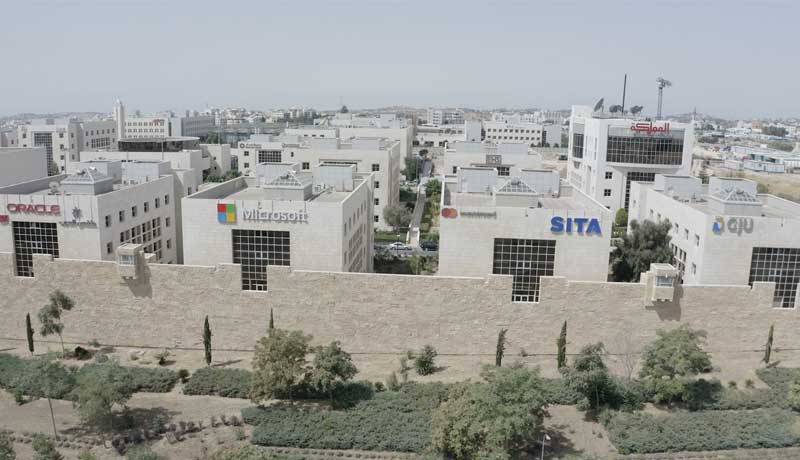
Jordan’s Ministry of Digital Sector and Entrepreneurship (MoDEE) has announced a new ground-breaking program to boost regional and international investment in Jordan’s digital outsourcing economy.
“27 per cent of the Middle East and North Africa (MENA) tech entrepreneurs are Jordanian, even if our population accounts for 3 per cent of the region,” HRH said, adding.
He added, “Our ICT sector boasts more than 600 technology companies and startups. Our tech talents have had an outstanding impact extending far beyond Jordan’s borders.”
He emphasised Jordan as a strategic location at the crossroads of Asia and Europe, saying, “From Jordan, you will be able to grow your businesses, reaching every corner of the world.”
“Our free trade agreements offer access to 1.5 billion customers in 161 countries,” he added.
They highlighted several factors that have paved the way for Jordan’s success as a potential regional leader in the ICT sector.

Speaking at the webinar, Minister of Digital Economy and Entrepreneurship Ahmad Hanandeh said Jordan’s ICT sector has great growth potential, offering highly skilled human resources and supporting infrastructure, legislation, and incentives. The minister emphasized the “Jordan Source” incentive program, explaining why Jordan has become such a popular BPO and ITO destination.
“We are starting this program and project from our full understanding of what the businesses in general and ICT sectors in specific are facing in a world that is fast transforming. The growing need of business IT and back-office outsourcing is essential for business innovation and its sustainability,” he added.
“Through this program, we are offering a big team that will act as account managers for those businesses and help them in everything they need to set up their businesses, attract, train, and up-skill talents,” Hanandeh said.
Jordan’s resilience, safety, and stability were highlighted, despite long-standing difficulties such as the Arab Spring, refugee influxes, geopolitical tensions, and the current global pandemic.
“Jordan’s greatest resource has always been its youth talent,” said Ferid Belhaj, MENA Vice President, World Bank.
The country’s population is youthful and highly talented, bilingual in English and Arabic with a neutral accent; they are digitally aware, highly educated, and eager to work for competitive rates.
More than half are under the age of 24, and 22% have degrees in information technology, computer science, or engineering.
The World Bank is assisting Jordan in implementing structural changes to improve the business environment and encourage private sector investment, according to Belhaj.
“The potential of BPO activities in Jordan is still largely untapped and may significantly contribute to increasing export revenues. Jordan is becoming a regional BPO center with many FDIs relocating to the country.”
Belhaj pointed out how the past decade has seen investments from Amazon, Webhelp, Aspire, Microsoft, and others, while local companies, like Crystel, for instance, are keen to expand.
Belhaj noted that Amazon, Webhelp, Aspire, Microsoft, and others had made investments in the previous decade, while local enterprises like Crystel, for example, are eager to expand.
According to Belhaj, BPO is an inclusive business that employs thousands of Jordanian youth, particularly women in underprivileged neighborhoods.
Jordan’s female to male ratio improved by 127% in three years, according to the Global Entrepreneurship Monitoring report, from 0.26 in 2016 to 0.59 in 2019.
Jordan’s advantageous location is complemented with a strong infrastructure. Jordan’s substantial energy sector, along with reliable internet and mobile connectivity, ensures that the power supply is stable, allowing ICT companies to connect and serve clients without interruption.
Thanks to its dynamic, diverse, and rich culture, Jordan provides a family-friendly and internationally open atmosphere for businesses and visitors alike.
Representatives from Crystel, Webhelp, Estarta, and Aspire spoke on a separate panel about the benefits of doing business in Jordan’s digital economy, despite the challenges faced during the pandemic.
According to the World Bank, Jordan’s real GDP is expected to rise at 1.9 percent in 2021, as economic indications point to an increase in domestic demand while global demand remains strong.
Ronaldo Mouchawar, Amazon Vice President, MENA, said that since Amazon entered the region in 2017 after the acquisition of souq.com, the company has positioned Jordan to be a regional hub: “We undertook many of our key activities, such as technical and machine learning development, device development such as Amazon’s voice over for Alexa in Arabic, operational excellence, and customer service here.”
“It showcased to many of our global colleagues the value that Jordan can provide in the region and for the global workforce of Amazon,” Mouchawar said.
After starting with a few hundred people in 2017, Amazon’s staff in Jordan has grown to 1,200, with aspirations to grow to 2,300 in the next years, according to Mouchawar.
For more than a decade, Jordan has been one of the region’s innovation hotspots. Its robust entrepreneurial culture has spawned a slew of high-growth firms, many of which have already grown regionally and become acquisition candidates.
Jordan’s government is eager to expand on its achievements, which include a highly skilled workforce, dependable ICT infrastructure, and a favorable business climate. Jordan Source aims to make the investment process easier and more convenient for regional and international companies interested in capitalizing on the Kingdom’s ITO and BPO industries.
